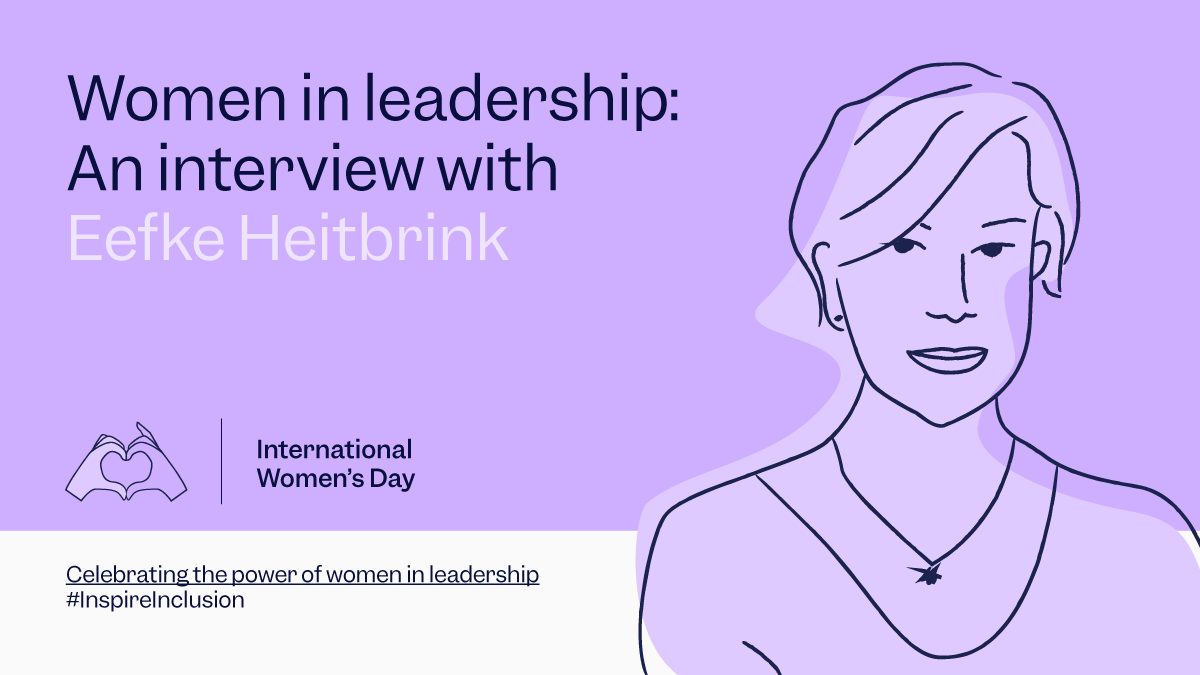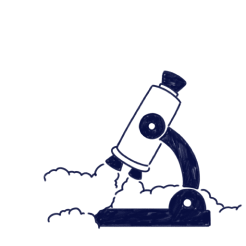
We had a discussion with our Finance and Accounting Manager about advancing workplace inclusion.
Eefke Heitbrink joined Scilife over two years ago as a Finance and Accounting Manager, starting when the department was just herself.
Before joining Scilife, Eefke was running a large ballet school with over 500 students and 10 teachers, where her management skills were equally essential. Her career has always oscillated between finance and dance, bringing a unique blend of talents and skills to Scilife.
As a female executive, we looked to her for guidance on dealing with gender disparity in executive roles, her encounters with overcoming professional barriers, and her approaches to developing a more inclusive and diverse corporate culture.
According to McKinsey, due to gender disparity in early promotions, men end up holding 60% of manager-level positions in a typical company, while women occupy 40%. What factors do you think have caused a gender imbalance in the workplace, specifically amongst senior leadership roles?
A significant challenge in achieving gender balance in leadership roles is the full-time nature of these positions. Women, especially during the child-rearing years, often opt for part-time work to manage family responsibilities. Although there are instances where women are more ambitious and the father assumes a greater role at home, these cases are an exception.
The requirement for roles to be full-time makes it difficult for women to ascend to these positions during the years they are raising children, typically from pregnancy until the child reaches 12 or 13 years old. If a family has multiple children, this period extends even further.
I think that's why women also delay starting a family if they have professional ambitions, aiming to climb higher in the corporate ladder before having children. However, once children are part of the equation, maintaining a high-level position becomes challenging, primarily due to the demands of a full-time job. Therefore, the rigid division between full-time and part-time work is a major barrier to gender equality in leadership roles.
Have you faced any barriers in your career due to being a woman? If so, how did you overcome them?
During my dancing career, the situation was quite different compared to my experiences in finance or accounting. In the dance world, there was an abundance of women and a scarcity of men participating, leading to intense competition among female dancers.
To secure a position, you had to excel significantly due to this competitive environment to get a job. On the other hand, men faced less competition, which meant the standards for male dancers were not as high because there weren't as many to choose from. I didn’t observe anything like this in finance and accounting.
How can leaders and organizations more effectively challenge and change these barriers to ensure inclusion?
I think that the issue of gender bias often begins during the interview process. In some countries, it's legally prohibited for potential employers to inquire about a candidate's plans regarding family and children. However, the practice of asking such questions disproportionately affects women, as men are seldom if ever, asked about their family plans and that should not influence hiring decisions.
I seriously hear about this issue a lot. I personally know someone who was in their first stage of pregnancy and they didn’t get the job because they were pregnant - they just got advised to reapply later.
I also encountered this problem when I was pregnant and working for a medical staffing company. Upon revealing my pregnancy, my contract was not renewed, only for the company to invite me back post-delivery. I ended up coming back because I needed a job to support my family.
Although I think the situation has improved over time, I think it remains a significant issue in many places and certain countries. For instance, in the Netherlands, it's illegal to ask about future family plans during interviews, yet the practice of discriminating based on pregnancy still occurs. This leads to a dilemma for women, who may choose to hide their pregnancy to secure employment, knowing it will soon become evident.
How important have allies been in your career, and what actions can everyone take to be a more effective ally for women?
I can’t think of one specific ally but I believe it's crucial for women to openly discuss and share their experiences, and be transparent about the challenges they face. While I don't have a specific example to cite, I've noticed a tendency for women to get together and express their frustrations without taking concrete actions to address these issues.
It would be more constructive if, instead of merely complaining to one another, we could bring our concerns directly to our employers or the relevant organizations. I know that this is easier said than done; I found that I wasn’t brave enough to do it either. So I think encouraging and supporting each other to speak up more could be a significant step forward in making real changes.
In your opinion, what’s a good indicator to measure gender equality in the workplace?
I think a good indication of gender equality within a company would be salary equity. It's well-known, even recently highlighted in the Netherlands, that women still earn less than men in identical or similar roles. This disparity raises the question of why men are paid more for the same work, indicating that salary differences remain a big issue.
Therefore, achieving salary parity would be a good measure of gender equality in the workplace. Despite some companies implementing salary scales to address this, inequality persists. Women often begin their careers at lower points on these scales compared to their male counterparts, and although both may progress, the initial gap can lead to inequality.
At Scilife, for example, while we have women in the Customer Success and Demand teams who effectively negotiate on behalf of the company with customers, women may find it challenging to advocate for themselves with the same assertiveness. I think that’s a really big issue for women; we’re too kind when it comes to negotiating for our own good.
Reflecting on your career, what stands out as your biggest achievement or the accomplishment you're most proud of?
One memorable highlight of my career was when I managed to get a group of nine crazy fathers from the ballet school to participate in a surprise performance at the end-of-year show. This was a secret that only their wives knew about, but their children didn’t know anything.
I invited them to join this special act for the June performance. They dedicated themselves to rehearsals every Wednesday evening, sneaking into the ballet school after everyone else had left. Over six months, these fathers, most of whom had no background in dance or dancing skills, learned their choreography and reached a really good level.
I remember everyone screaming with enthusiasm when they started dancing on stage, and they still talk about it today. It was a nice experience and I think a great achievement because the dance group formed by these fathers still exists today, after 8 years, even though some original members have left and new ones have joined.
I no longer teach the group, but I remember doubting how I could get this project to work. But we succeeded and it was a great experience for me and them.
What would your advice be to women who are trying to achieve their career ambitions?
I think it's very important to keep learning throughout one’s life. There's always room for improvement and I think if you are eager to learn, you can always improve and be better. There are so many things we are capable of that we didn't even know we could do. So, I think lifelong learning is fundamental.
Looking back at my younger self in my 20s, I remember being very shy and scared to speak up. I really hope that young women will do that more and I think this generation is doing that more, but it's also something you have to work on and cultivate in your character. I think it's so important to fight for your rights and equality. Being open about these issues and discussing them with others is crucial.
Is there anyone who has inspired you in your career?
Reading Michelle Obama's autobiography inspired me, particularly her remarkable discipline. As a black woman, she faced significantly greater challenges than I have as a white woman. Her resilience, determination, and accomplishments in the face of such adversity are truly admirable.
Her disciplined approach to life, as detailed in her book, is especially motivating. She meticulously planned every minute of her schedule, maintaining a level of strictness and focus that I find incredibly inspiring.
Her ability to consistently maintain this discipline, even when it might be easier to postpone tasks to another day, exemplifies a level of dedication that I aspire to. It’s a reminder of the importance of staying focused, I would advise all women to read it.
Why is it important for all companies to strive to have good gender diversity both within their workforce and among their leadership?
I think it's important to have both men and women in your company, but also to embrace all gender identities and accept everyone. I think that one of the best ways to create openness in gender, race, etc, is within smaller contexts like a company because we can really learn from each other. For example, at Scilife, we collaborate with teams in India, the US, and Europe, offering us a rich opportunity to learn from diverse perspectives.
Hearing stories from colleagues living in India, for instance, provides us in Europe with insights into a markedly different way of life, fostering mutual respect and understanding. Ultimately, it reminds us that regardless of gender, country of residence, or religion, we are all human. Such a workplace culture promotes respect and learning from one another. I think it’s like bringing biodiversity to a company setting.
What does International Women’s Day mean to you?
I think it's a pity that it's still needed, but at least once a year, we hear on the news about gender equality progress. Companies and news outlets present data comparing the current year's progress to previous years, showing whether there has been an improvement in gender equality or not. This annual review helps keep us aware of our standing and reminds us that, while we may not be in the best place yet, it keeps our focus on making progress and maintaining awareness of the issue. Hopefully, we will keep improving every year but I think we will need a few generations more to achieve full gender equality.
In Europe, for example, the situation is much better, but that's not the case everywhere in the world. I feel lucky to live where I am, with the opportunities available to me, and I'm aware that not all women have these advantages. I think it's important to recognize how lucky you are as a woman, depending on where you live.





